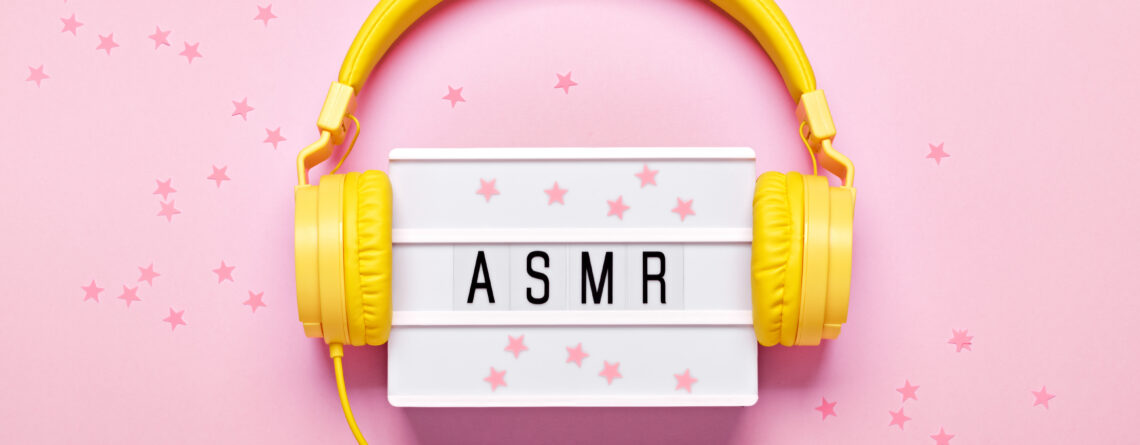ASMR: The Unexpected Mental Health Benefits
The Nystrom & Associates provider consulted for this article on ASMR is Dr. Karin Ryan, PsyD, LP.
If you’ve spent enough time online, you’ve probably found it full of videos that can have a negative impact on your mental health. But did you know that there are some real mental health benefits to watching ASMR videos?
In this article, we’ll cover what ASMR is, the research behind it, and how to find the right videos for you to get all its great mental health benefits.
Related: Social Media and Teens: More Harm Than Good?
What is ASMR?
ASMR stands for “autonomous sensory meridian response.” It relates to certain people's response to a type of sound, visual, or sensation that causes a tingling sensation in their body and down their spine. “It’s a response that about 20% of the population have to certain stimuli,” says Dr. Karin Ryan, “and it’s a very pleasant sensation.”
Videos intended to stimulate ASMR can feature a variety of sounds and visuals. Some videos include gentle tapping, whispering, clicking beads, or rushing water. The key feature is that they’re often slow, calming, and quiet.
Even for people who don’t have an ASMR-specific reaction, ASMR media can have a calming and relaxing effect on them. Next, we’ll get into the research that shows the mental health benefits of watching ASMR videos.
Related: Watch Dr. Karin Ryan explain ASMR on KARE-11
The Research on its Mental Health Benefits
Research has shown that there are real mental health benefits to ASMR for people who have a reaction to it. Dr. Ryan explains that a certain spot of the brain is activated when experiencing ASMR, and this sends relaxing signals to the rest of the body:
"When they do scans of the brain, while people are observing or taking in ASMR, there's certain parts of the brain that are activated: the nucleus accumbens, which is associated with a kind of pleasure or positivity... It's also a part of the brain that sends those sensory relaxation signals. So, it really does have a true impact on people who find that pleasant ASMR experience."
Additionally, new research suggests that ASMR can help people who struggle with depression and insomnia. Dr. Ryan adds that it can also be an effective tool for relaxation.
"It slows you down, as well. So not only are you taking in ASMR, and it's giving your brain that stimulation and that tingling sensation, but you're also sitting, and you're watching something that's calming. You're breathing. Your heart rate slows. You become more still," she says.
Interested in trying it for yourself? Next, we'll cover how to find the right ASMR for you.
Related: Strategies to Manage Anxiety: Therapist-Approved Tips
Watch Dr. Karin Ryan Discuss ASMR on Twin Cities Live
How to Pick the Right ASMR for You
Picking a type of ASMR that works for you may require a little time and some trial-and-error to see which type gives you the most benefits. Dr. Ryan compares it to finding a guided meditation that works for you, “When I’m guiding clients to find a meditation that they like, I tell them to listen to at least five to 10 meditations because they all have different voices, intonations, and pace.”
She goes on to say that on a larger scale, it’s helpful just to think about what kinds of sounds we want to have in our environment. “I really want to empower all of us to be thoughtful about sounds that we take in each day. You can curate the sounds around you.”
To the best of your ability, whether you choose ASMR or not, try to be mindful of the effects certain sounds have on your mood. Does a particular podcast relax you or make you agitated? Do any genres of music calm you down when you hear them? Being aware of the effect sounds have on you can help you select ASMR that works for you and helps you better curate your environment for your well-being.
Related: 8 Mindfulness Practices to Reduce Stress
Ask for Help
While ASMR videos and other relaxation resources can help with stress, if you feel overwhelmed with life’s difficulties, please ask for help. Nystrom & Associates offers a variety of services to empower you to cope with life’s challenges. Whether you’re looking for talk therapy, medication management, addiction treatment, or something else, please remember that asking for help is a sign of strength.
Call 1-844-NYSTROM or request an appointment online to get help today!
Related: Am I Covered? Navigating Insurance Coverage for Mental Health







